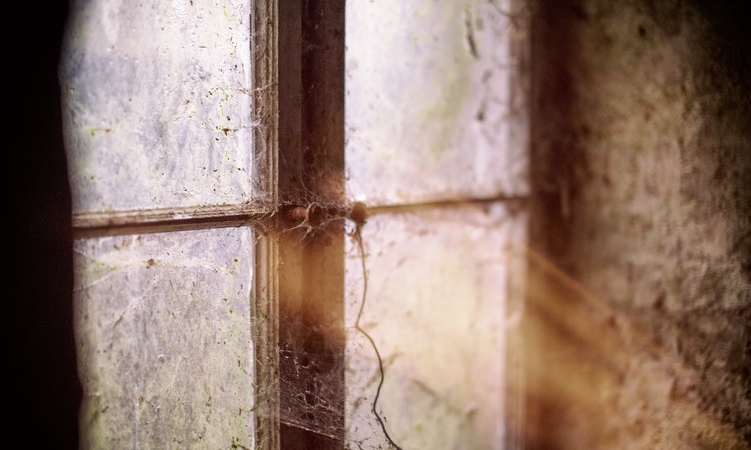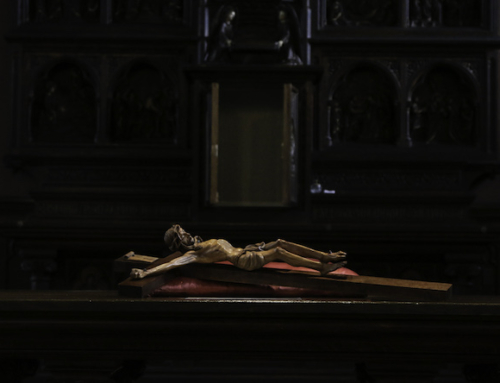For you have died, and now your life is hidden with Christ in God.
—Col 3:3
Life should be, first and foremost, a preparation for death and what lies beyond.
We are created with certain natural needs and purposes, but above and beyond these, God gave us a supernatural end which we can see faintly in faith. “You have created us for yourself, oh Lord,” Saint Augustine cried out with joy, “and our hearts are restless until they rest in you.”
In Christ is all delight and in coming to know him, we come to know a joy that never ends. When the veil of this world is pulled away, we shall see him as he is, and our hearts will be filled. Life, then, should be focused on preparing for the moment of sight, and all the momentless moments afterward, lest we blink and miss him when he comes.
But how can we prepare to see him whom angels adore? By becoming pure of heart. Blessed are the pure of heart, the Lord tells us, for they shall see God (Mt 5:8). The pure of heart clear away all distractions and burdens, cooperating with the grace of God working in them. Like children sitting at the window, waiting with anticipation for our heavenly visitor to come, they open wide the curtains and clean off the window panes (and their glasses) to see him clearly when he comes.
Here lies part of the work of Lent: getting ourselves in our sinfulness out of the way. Often, the shades of our heart are drawn, or at least our glasses are smudged, making it hard to even see God’s presence in our life on earth. Letting God clean the windows and open the shades allows us to see him more clearly when he comes, in time and in eternity.
Late in Lent, our fervor tends to flag. The remedy? Keeping in mind the one who is our hope, so that the difficult task of cleaning out our hearts might become a joyful affair, as joyful as cleaning house before a party; though still arduous, the labor never becomes drudgery because we do it for someone we cannot wait to see.
To see the Lord requires this purity, but what we long for after death transcends merely seeing without obstruction. The one we hope to see clearly, know truly, and love deeply towers as high above our sight as the heavens above the earth. As an explorer looking into a deep chasm can only see so far because of the weakness of his eyes and the dimness of his flashlight, so we, with our limited intellects and the dim light of our natural reason, can only peer so deep into God’s ineffable splendor. To see him truly requires his aid given freely.
During our life on earth, God gives his aid through the light of grace, by which he heals our sight and even augments it so that, as we come to love him more and through that love become more like him, we also come to see him more clearly. But when our life on earth passes into the hoped-for life of heaven, the light of grace will be fulfilled in the light of glory, a greater light created in our hearts so that our still human sight can “see him as he is” (1 Jn 3:2). We will still be human and so only be able to focus on one thought at a time, but with the light of glory enlightening our intellect, that one thought shall be God and we will see him, not dimly “as in a mirror” (1 Cor 13:12) but clearly as two people speaking face to face (Ex 33:11).
Here lies a second task of Lent: to grow in our friendship with God so that, with minds made pure, we may long for him, suffer at his perceived absence, delight at his true presence, and see him one day in the light of glory, a still-higher grace born from the grace of perfect love.
For only the Light of Christ is bright enough to plumb the depths of the abyss of divine grandeur.
✠
Photo by Denny Müller







